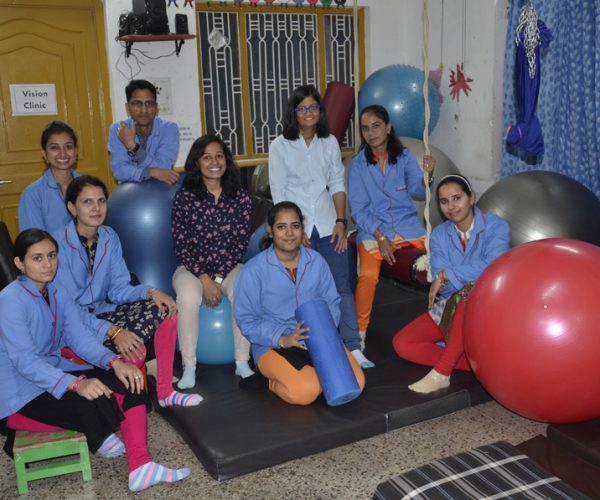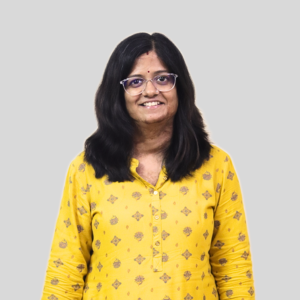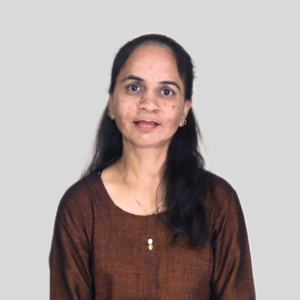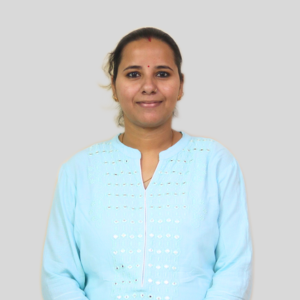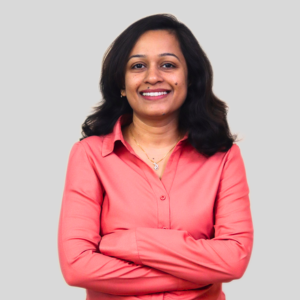Mission
“To offer an integrative platform dedicated to providing the finest therapies and training tailored for children with disabilities focusing on their holistic development and empowering parents with essential education around disability and intervention”
History
The foundations of Sankalp were laid with the realization that “ALL CHILDREN CAN AND WILL LEARN”.
Sankalp was started by two friends Dr Jaya Bhavsar and Dr Ruchi Dixit who had done their Bachelor’s in Physiotherapy and thereafter were on a journey to finding out their niche. The exposures they got during their internships got them introduced to the domain of pediatric physiotherapy. In regards to exploring this field, both of them got in touch with ‘Vidya Sagar’, an eminent organization based in Chennai working in the field of disability for many decades. After receiving extensive training in Pediatrics at Vidya Sagar, both of them learnt about services relating to assessment, early intervention, elements of occupational therapy, elements of special education, visual stimulation and many others. This gave them enough motivation to begin Sankalp as a Not for Profit organization registered under the Society Act of Rajasthan. It started in a small shop of a complex, where the major focus, in the beginning was on physiotherapy, and later on both of them understood the importance of other areas of development and the benefits of a holistic approach. Over the years, both Dr Jaya and Dr Ruchi have been going for several pieces of training, advanced courses and workshops themselves, in order to develop their capacities and constantly bring newness to rehabilitation practices. This has been the main reason behind the expansion of services at Sankalp, catering to all social and economic backgrounds.
.
Objectives
- To provide and promote Early Intervention and Rehabilitation services.
- To extend awareness about disability amongst children, along with spreading awareness about recent therapies.
- To empower children by maximizing their potential through working on areas like cognition, communication, motor, sensory etcetera vis-à-vis age appropriate development milestones.
- To empower and assist families, majorly parents of children with disability around caring and management processes through training and periodic meetings.
- To provide free and/or subsidized rehabilitation services to children who come from low economic and social backgrounds.
- To provide access to education, public spaces and acceptance in accessing public spaces for children with disability.
- To organize/ conduct regular training and workshops for staff members, care-givers, volunteers and students around various physical, mental disability and allied topics.
- To facilitate formulation of an informal group of parents with children having disability.
- To form collaborations with schools, colleges, medical professionals, development professionals, special educators and other organizations working in rehabilitation services and issues relating to disability.
Approach
Sankalp believes that children with disability can achieve their potential and do wonders if provided with a learning and acceptable environment, with some modifications according to their needs. ‘Clinical Therapeutic and Functional Approach’ runs through the blood of Sankalp Pediatric Rehabilitation Center; whereby the child gets the best of both, formal professional engagement and family partnership through counseling and training. The uniqueness of this center lies in facilitating learning for disabled children in natural environment by making them to learn real thing at real time, instead of creating an artificial highly formal set up.
Sankalp understands and propagates that disability is real and cannot be cured, but through Rehabilitation (the basis of which lies in Neuroplasticity), families and the individual can learn to rejoice living with disability.
Meet Our Team
Our team of rehabilitation specialists helps each individual reach their maximal level of independence in self-care, mobility, communication, cognition and socialization.

